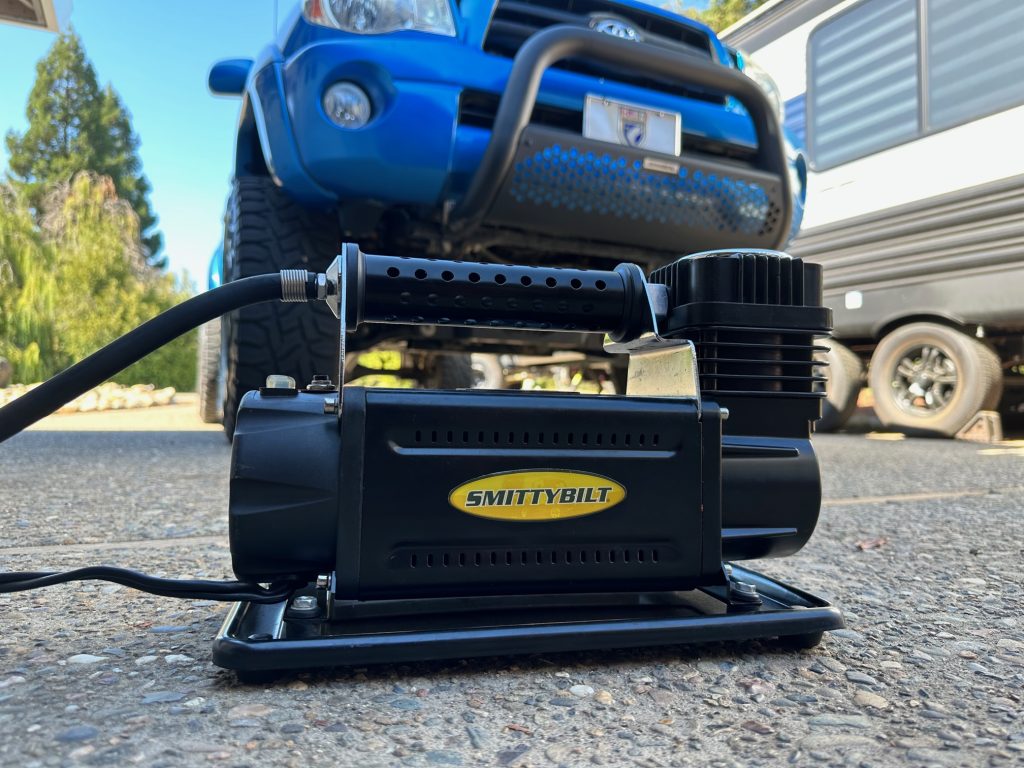
Whether you are a hard-core rock crawler or just a weekend 4×4 warrior, one thing is for certain, you will need to air down your tires when hitting a tougher trail or deep snow. Letting the air out is always the easier part. Finding ways to get that valuable air back when you are done wheeling can be a challenge.
The Smittybilt 2781 compressor has a great concept for use anywhere by using your battery as a power source. Having a compressor ensures you will have continuous air in your time of need. Using the compressor correctly will also help you ensure your compressor does not fail and that you supply the adequate amount needed to reinflate your tires.
There are many different tire sizes and setups for different types of off-roading. For this article, I used Toyo Open Country 35X12.5R17LT tires mounted on Pro Comp wheels. I reduced the tire pressure to 10 PSI and then used the Smittybilt compressor to air them back to the recommended PSI.
I have used this compressor several times in off-roading situations. I used some of those experiences to help provide a more in-depth version of the normal use as well as issues I have experienced using this compressor over several years.
Find It Online
- Smittybilt 2781 5.65 CFM Air Compressor: Check Price
Tools Needed
- Vehicle battery
- Tire pressure gauge (optional)
Table Of Contents
Where to Air Up
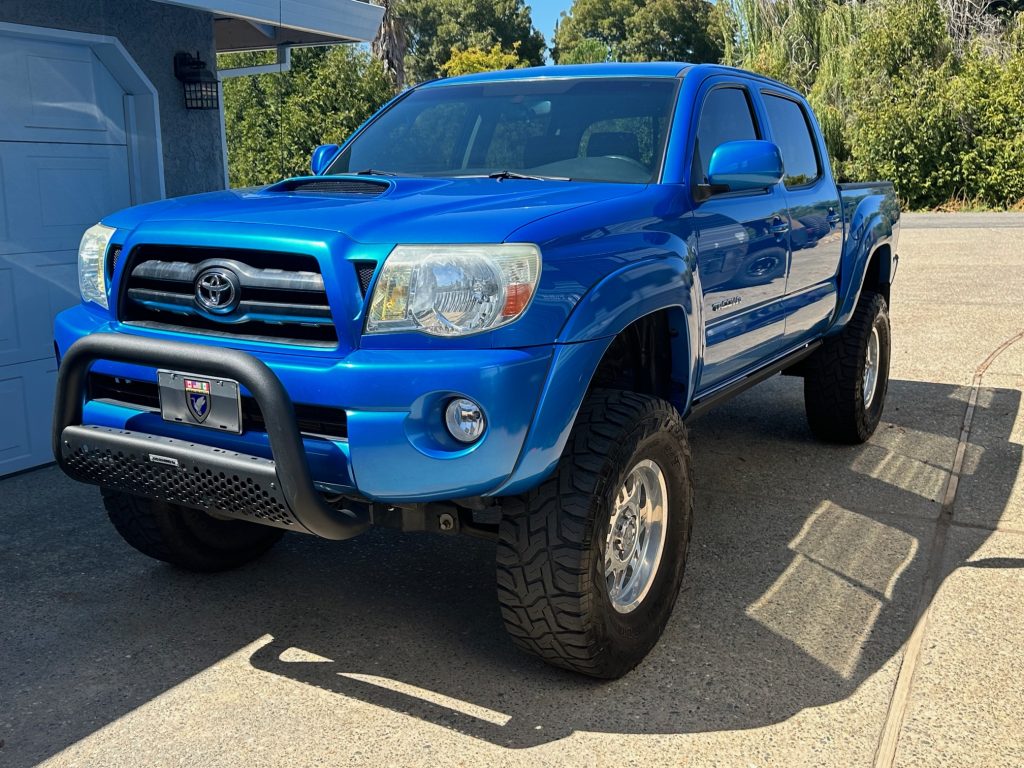
When it is time to bring your tires back to roadworthy specs find a safe place to start your airing up process. Usually, you want to find some flat ground if possible. Make sure it is a safe area and you are out of the way of any traffic or other wheelers that may want to drive through. This may sound simple, but many people forget to follow this simple rule of wheeling etiquette. Many of us have seen that guy airing up in the middle of the road blocking everyone’s exit.
Step 1. Access Battery
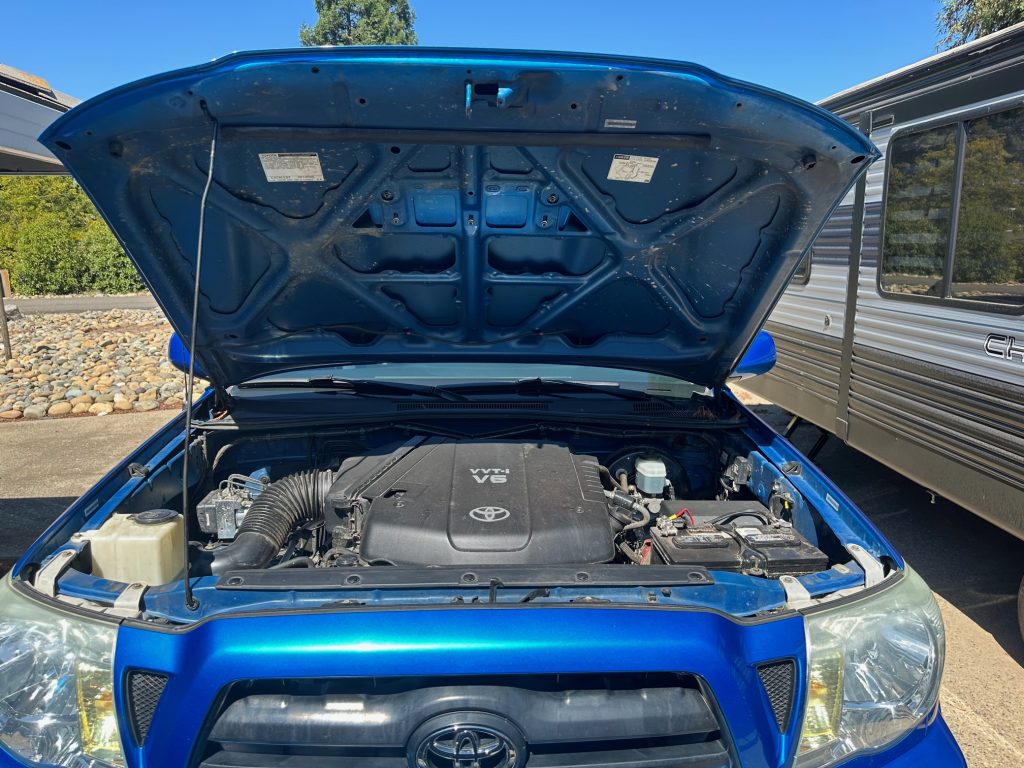
Once you gain access to your battery, find a good solid place to set the compressor. This is important because when the compressor is in use it can vibrate causing it to move around. If you do not have it in a solid secure area you may run the risk of it vibrating off your vehicle (if that is where you place it) causing damage to the unit and possibly your truck. I recommend placing it on the ground if you can.
Step 2. Connecting Hoses

Connect the attached air hoses using the quick disconnect fittings that are attached to each hose and the compressor unit. There is no real order needed here, so find your method and stick with it. I usually start from the compressor and work my way out to the valve stem attachment. Screw on the valve stem attachment to the tire you are inflating.
Step 3. Connect Alligator Clips
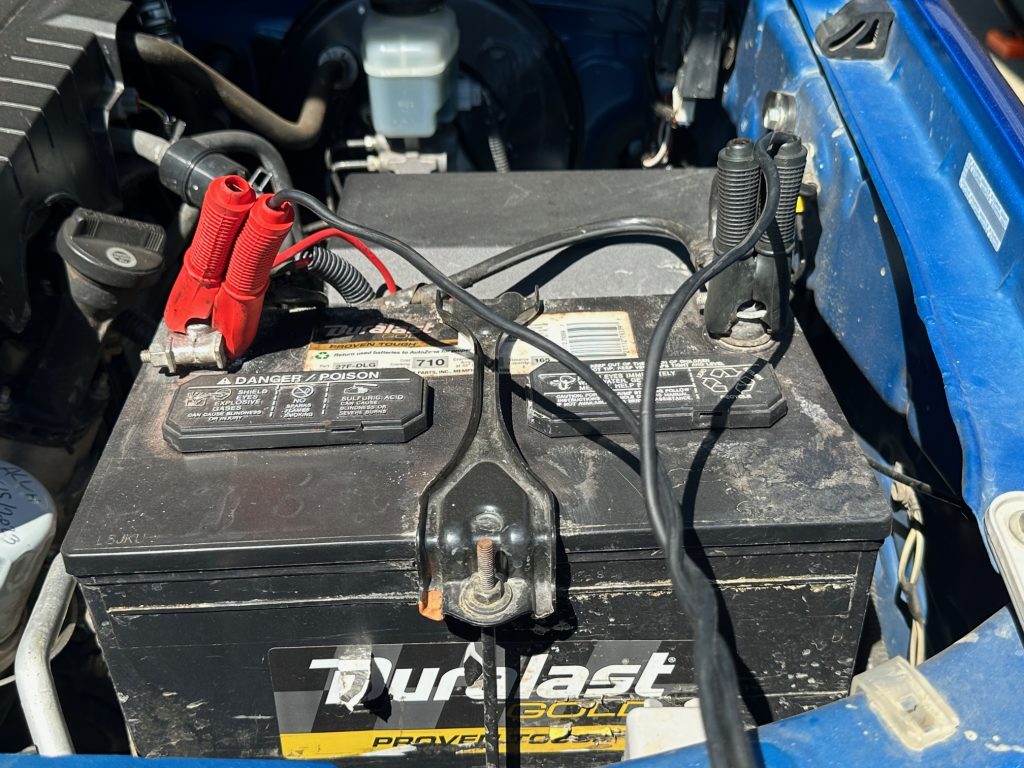
Once your hoses are attached, you can connect your compressor to the battery. Connect the red clamp to the positive terminal and the black clamp to the negative terminal. You will not need to disconnect the battery while airing up each tire.
Step 4. Turning Compressor On

Now that you have everything attached you are ready to air up your tires. Turn the switch to the on position on the compressor. It should start supplying the needed air to reinflate your tires. Watch the attached pressure gauge to determine when the tire reaches the required amount of PSI.
Step 5. Turning Compressor Off
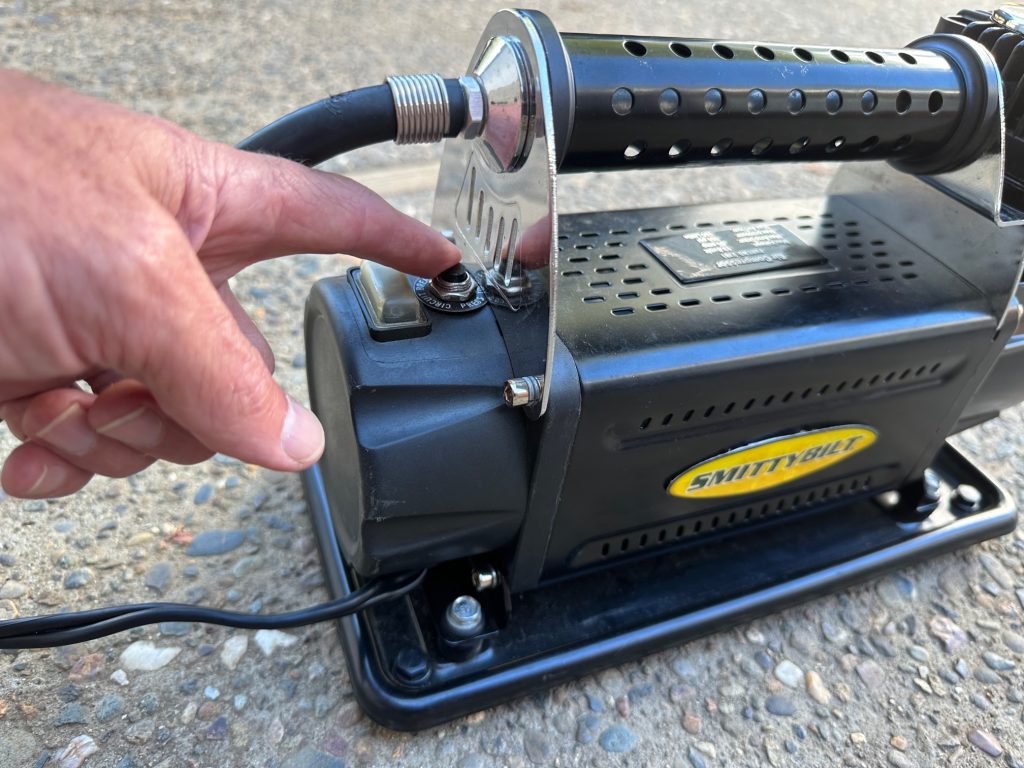
Once you have reached the desired PSI; turn off your compressor. Many people do not turn the compressor off thinking they can move from tire to tire with the compressor still running. Although you can do this, leaving the compressor on will lead to it overheating and causing the breaker to trip. I found that turning the compressor off between each tire fill helps it maintain a good operating temperature and reduces the chances of you tripping the breaker. If you do trip the breaker you may need to wait for the compressor to cool off before it will reset.
Step 6. Disconnect From Valve Stem
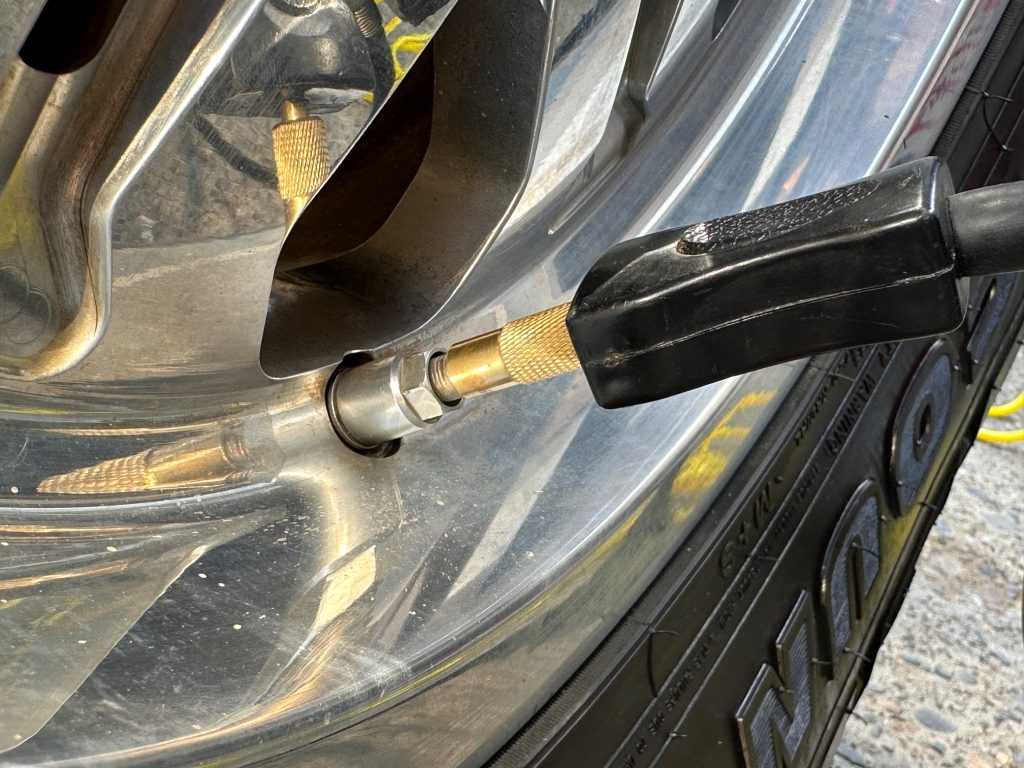
Once the compressor is off you can remove your connector from the valve stem. Make sure you double-check your PSI with an accurate tire gauge. I have found the gauge that comes with the compressor can be inaccurate. Once your PSI is at the desired level, you can move to the next tire and repeat steps 4 and 5.
Step 7. Storage
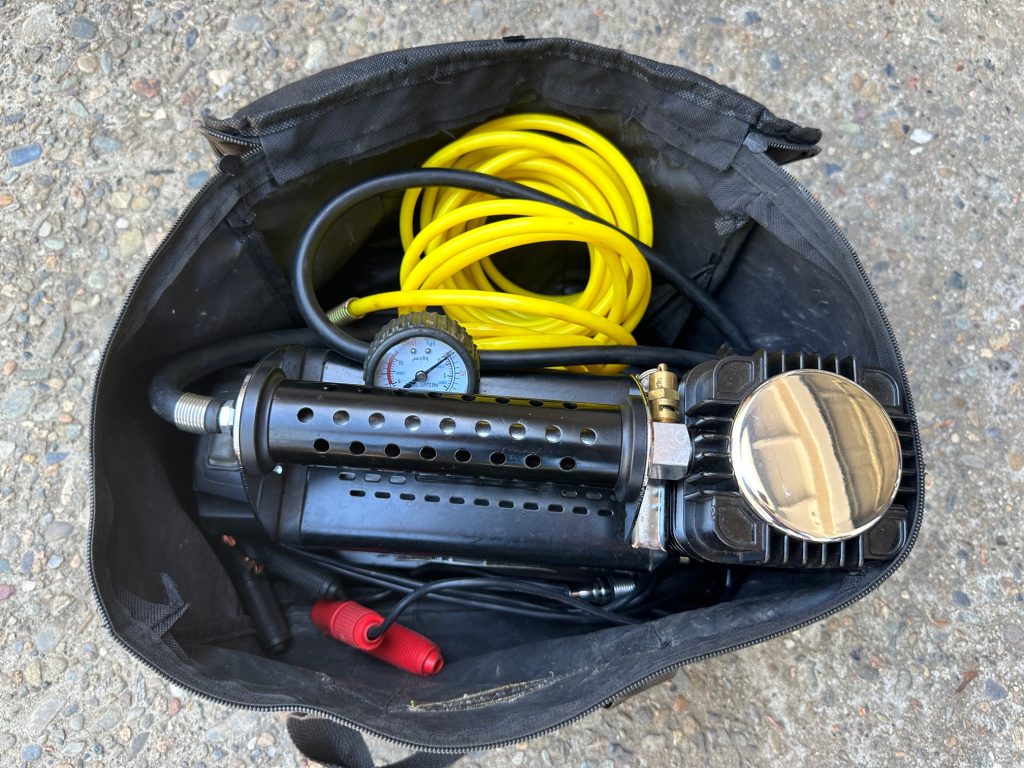
Once all your tires are inflated and your compressor is off, disconnect the battery connections. Then you can take off all the hose attachments and prepare them for storage in a travel bag if you have one. Make sure you do not pinch any of your hoses when preparing them for storage. This can damage the hose and possibly make it unusable the next time you need it. Make sure none of the connections are extremely hot before placing them in storage.
Without any delay, let’s jump into the pros and cons of the Smittybilt 2781.
Although it functioned well in many areas, it did have some faults that should be recognized. There are also a couple of safety items you should be aware of to ensure you do not risk any type of injury or damage.
Pros
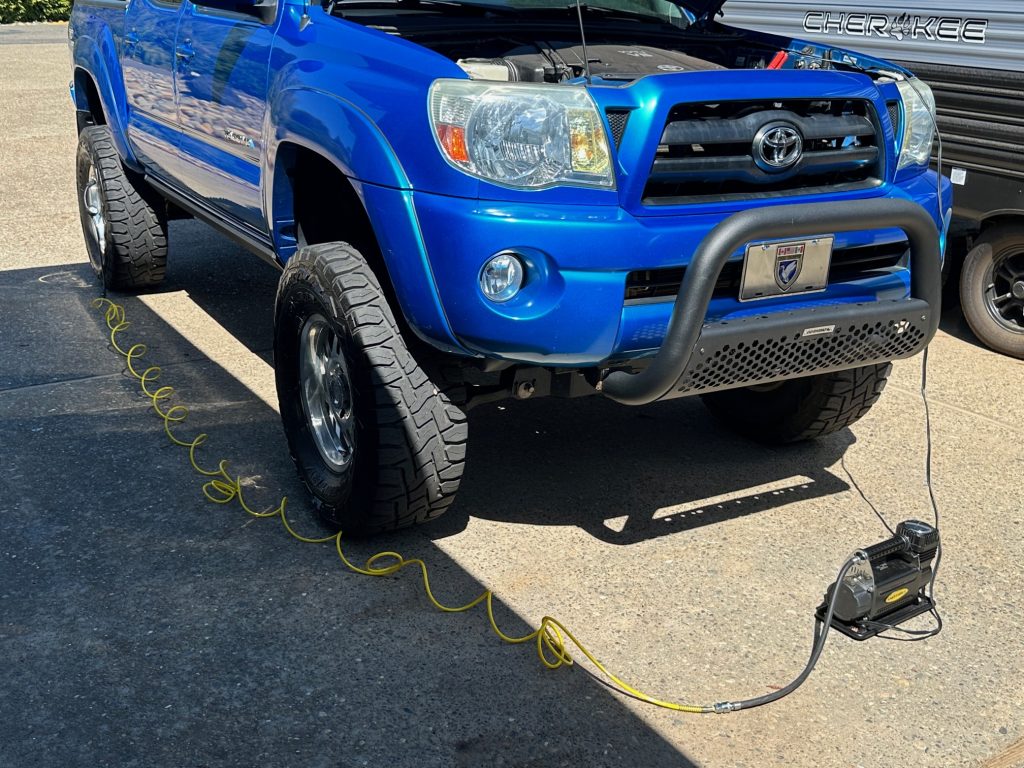
The Smittybilt 2781 compressor is very easy to use and requires no tools except a battery (which technically is not a tool) and a tire pressure gauge (optional) to ensure you get an accurate PSI reading. You can use the compressor pretty much anywhere you have a battery. This is a great asset to any off-roader.
The hoses provided are long enough to reach every tire on pretty much any vehicle with ease. The air provided by the compressor is satisfactory and will get you to the required PSI promptly (approximately 4-6 minutes per tire). Having the attached PSI gauge is helpful so you know when your tires are fully inflated.
The quick disconnects on the hoses work well and make it easy to attach the hoses to the compressor as well as each other. They do provide rubber covers for the quick disconnects which helps reduce the chance of getting burned. They get extremely hot, see below for further details.
Cons
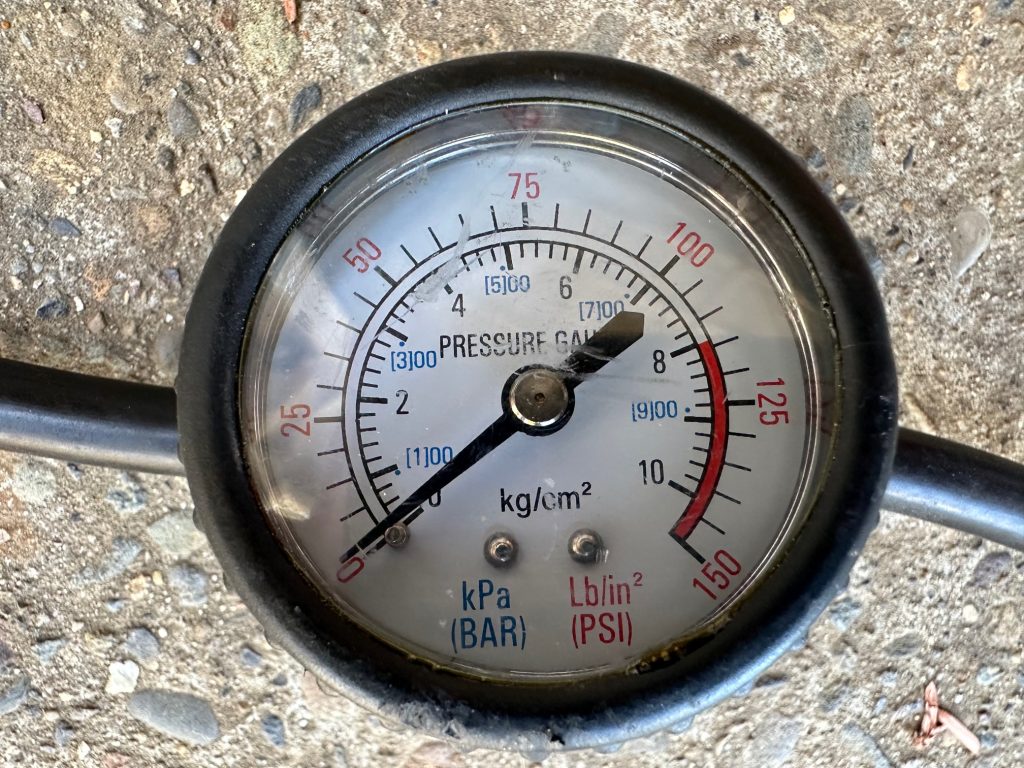
The compressor does get pretty hot. It does have a good handle that will allow you to carry it when it is hot, however, the heat will cause it to trip the breaker on occasion. The metal connections get extremely hot. I have found that they will be untouchable sometimes and extreme care should be taken before disconnecting them. I will either wait a little bit or stick them in the snow to cool them off.
The attachment for the valve stem stem has to be screwed onto the valve stem to inflate it. It does ensure the attachment will not disengage during inflation, however, screwing it on and off each valve stem can be slightly time-consuming.
I found the PSI gauge on my unit to be inaccurate by almost 15 PSI. This may just be my gauge, but it is concerning and warrants using a good tire pressure gauge to ensure accuracy.
The quick disconnects are a great idea however, they do not fit other standard quick disconnects. There are ways to change these connections and make them more universal but we can discuss that in another review.
Final Thoughts
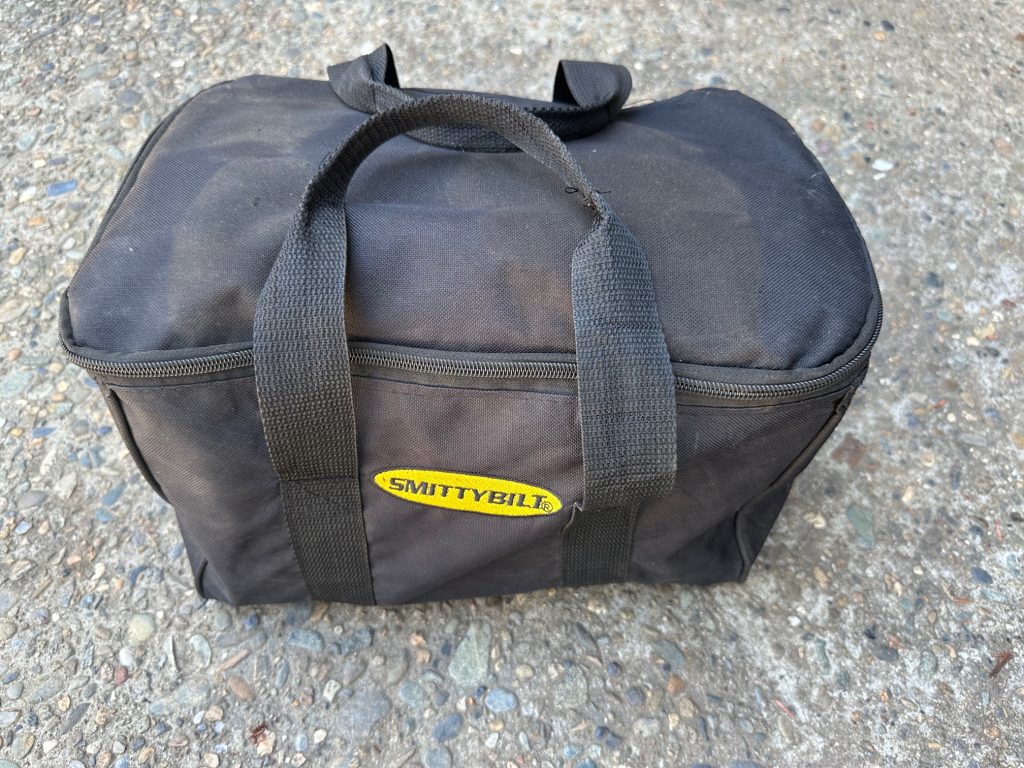
Overall the Smittybilt 2781 compressor is a well-built unit. I found it very easy to use when out on the trail and getting ready to return home on the highway. One of the things I like about the compressor is the ability to use your battery as a power source. This ensures you will not run out of air anytime soon unless the compressor overheats and pops the breaker or your battery dies. Even if that were to occur, all that is needed is time to let it cool off and reset the breaker or borrow a battery.
The hoses and fittings are well-built and should last for a long time even with excessive use. Although my preferences for the quick disconnects and valve stem attachment would require them to be changed to a different style, they still work very well and give me no indication they would fail with prolonged or extensive use.
The storage bag that comes with the unit is ok. It is not one of the better storage bags I have used, however, it does store the compressor and all the hoses with attachments without any issues. It would be nice to have a separate bag for the hoses to ensure you do not kink them and they can stay rolled up securely, however, I have stored them in this bag for a while and even placed them in the bag with a hot compressor causing no issues. An extra bag would just make it easier in my opinion.
You could not go wrong with the Smittybilt 2781 compressor setup. It has everything you need and is easy enough for anyone to use without difficulty. If you are looking for a good reinflation option, look at the Smittybilt 2781 Compressor.



Great article Wayne a lot of great information perfect size air compressor for off-road or in the backwoods. I have one that’s similar and I did change the quick connects to standardized automotive works great with my motorhome and now I know when that one finally goes out this one will more than do the job. Thanks again looking forward to reading more great reviews like this one.
Thanks Curtis! Stay tuned I will be submitting an article for a tonneau cover very soon!
great review, I have the same air compressor and only complaints I have are the tire gauge and how hot this compressor gets after airing all the tires. My tire gauge reading are also off by 10+ psi.
Thanks again Fred!
Thanks Fred. It is interesting. Great compressor otherwise.
Wow, What a review. It’s Great to read about a product that the writer believes in whole heartily. With all of the crap out on the market your review Gives me feeling of trust in a product . Thank you very much👍😊
Thank you Larry!
Thanks Larry. There should be more to come in the near future. Stay tuned!